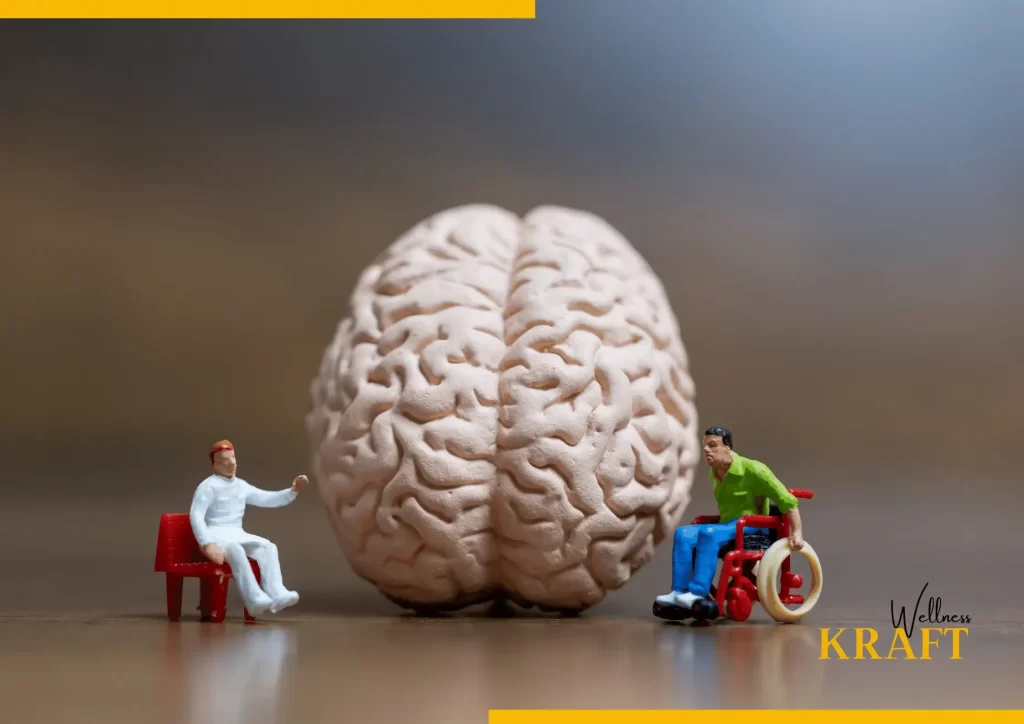“To not be okay is acceptable. Just keep trying. Ask for assistance and speak with someone.” – Wellness Kraft
Introduction
Mental health and suicide prevention are crucial topics in today’s society. Promoting awareness and effective support systems is crucial in addressing this sensitive issue with compassion and understanding. This article explores suicide prevention, highlighting the importance of mental health and offering helpful resources for individuals and communities. Our goal is to increase awareness and aid in the effort to save lives by examining the causes, risk factors, and support resources related to this important topic.
Table of Contents
Causes and Risk Factors of Suicide: A Comprehensive Guide

The issue of suicide is complex and can be influenced by various causes and risk factors. By developing a comprehensive understanding of these factors, we can strive towards efficient prevention tactics and bolstering support networks. Approaching the topic of suicidal thoughts and behaviours with sensitivity and empathy is crucial, as it involves complex emotions and circumstances.
Mental health conditions are a leading factor contributing to suicide. Individuals with depression, anxiety disorders, bipolar disorder, and schizophrenia are at a higher risk of experiencing suicidal thoughts. Conditions that cause emotional pain, hopelessness, and isolation can lead to suicidal thoughts.
Additionally, suicidal thoughts can be influenced by personal circumstances and life events. Experiencing trauma, loss of a loved one, relationship issues, financial struggles, or a past of abuse can all contribute to elevating an individual’s risk. Difficult life situations can intensify emotions of hopelessness and powerlessness, leading people to consider suicide as a possible way out of their issues.
Social and environmental factors play a crucial role in determining the risk of suicide. A higher risk of mental health issues can be attributed to various factors, including limited access to healthcare and mental health services, social isolation, lack of social support, and stigma surrounding mental health.
Creating supportive environments that promote resilience and well-being is crucial in addressing societal issues.
Substance abuse and addiction can increase the likelihood of suicide risk. Mental health conditions and substance use disorders frequently occur together, resulting in impaired judgement, increased emotional distress, and impulsive behaviours. Substance abuse interventions and addiction recovery support play a vital role in preventing suicide.
It’s crucial to keep in mind that every person’s encounter with suicide is distinct, and there’s seldom a sole reason that can completely clarify why someone thinks about or endeavours suicide. It is not a single risk factor but a combination of multiple factors that interact and increase an individual’s susceptibility.
Enhancing our ability to identify those at risk and provide appropriate support and intervention can be achieved by understanding the causes and risk factors involved.
Efforts towards suicide prevention should prioritise addressing mental health issues, fostering supportive environments, and providing easily accessible mental health resources for those who require them. Let’s work together to create a society that places a high value on mental health and decreases the prevalence of suicide.
The Impact of Mental Health in Relation to Suicidal Ideation
The impact of mental health on suicidal thoughts is significant. Recognising the complex relationship between mental health and suicide prevention is essential for effective suicide prevention efforts. Understanding the correlation between mental health and early intervention can lead to the development of effective support systems for individuals facing mental health challenges.
People struggling with mental health issues are at a higher risk of experiencing suicidal thoughts. Mental health conditions like depression, anxiety disorders, post-traumatic stress disorder (PTSD), and borderline personality disorder can increase the likelihood of suicidal thoughts. Conditions such as emotional pain, despair, and hopelessness can lead to a sense of entrapment, making suicide appear to be the only escape from the suffering.
Inadequate management or lack of treatment for mental health conditions can exacerbate suicidal ideation. Individuals may face obstacles in accessing mental health services due to social stigma and fear of seeking help, which can prevent them from receiving the necessary support. Promoting mental health awareness, reducing stigma around mental health challenges, and ensuring accessible quality mental health care is crucial.
Co-occurring substance abuse disorders can exacerbate mental health symptoms and heighten the likelihood of suicidal thoughts. Substance use has the potential to negatively impact judgement, intensify emotional distress, and lower inhibitions, leading to impulsive and self-destructive behaviours. Effective intervention requires integrated treatment approaches that cater to both mental health and substance use disorders.
Mental health has a significant impact on suicidal thoughts that goes beyond particular diagnoses. People who don’t have a diagnosed mental health issue may also face considerable psychological distress that can result in suicidal thoughts. Factors such as stress, challenging life situations, and feelings of loneliness can negatively impact mental health and heighten the likelihood of suicidal ideation.
Emphasising the significance of early intervention and offering comprehensive mental health support is crucial for optimal outcomes. Establishing an environment of transparent communication, where people can confidently seek assistance without fear of criticism, is essential for success. Our mental health centre offers a variety of services such as therapy, counselling, support groups, and helplines to help individuals overcome their mental health challenges and find hope during tough times.
By placing emphasis on mental health, raising awareness, and providing easily accessible support, we can reduce the effects of mental health on suicidal ideation. Remembering that recovery is achievable and that no one should confront their challenges alone is essential for mental health. Let’s work together to create a society that prioritises mental health and takes action towards preventing suicide.
Identifying Individuals at Risk: How to Recognise Warning Signs

Identifying the warning signs of suicide is essential for detecting individuals who may be at risk and offering timely intervention. By recognising these indicators, we can take a proactive approach to suicide prevention and provide assistance to those who require it the most.
Recognising warning signs is crucial in identifying individuals who may be contemplating suicide. The indications can appear in multiple forms and might comprise:
1.Verbal Cues:
It is important to be aware of verbal cues that may indicate thoughts of self-harm or suicide, whether they are direct or indirect statements. Statements such as “I am unable to continue” or “It would be better for everyone if I were not here” should be given due consideration.
2.Behavioural Changes:
Look out for any significant alterations in behaviour, such as social withdrawal, decreased interest in previously enjoyed hobbies, escalated substance abuse, or giving away prized possessions.
3.Mood Swings:
It is important to be mindful of significant mood changes such as prolonged feelings of sadness, irritability, restlessness, or sudden positive mood shifts following a period of depression, as these could be warning signs of suicidal thoughts.
4.Social isolation:
It’s important to observe if an individual begins to withdraw from their social circle, family, or other forms of support. Individuals may exhibit withdrawal from social interactions and display an inclination towards increased emotional distance.
5.Reckless Behaviour:
Stay alert to avoid participating in hazardous or self-harming activities that may compromise your safety, such as driving carelessly or misusing drugs and alcohol.
Sleep Pattern Changes:
Keep an eye out for notable alterations in your sleep patterns, such as insomnia or oversleeping.
Signs of Suicide Preparation:
It’s important to take note if someone begins giving away personal belongings or making arrangements, as this could be an indication of preparing for suicide.
The Importance of Education and Awareness in Developing Supportive Communities

Creating strong and supportive communities is crucial in the prevention of suicide. Education and awareness are crucial in reducing stigma, encouraging early intervention, and cultivating a supportive and understanding culture.
Raising awareness about mental health and suicide prevention is crucial in dispelling myths and enhancing understanding of these important topics among the general public. Empowering individuals with accurate information can help them identify signs of distress and take necessary action.
Educational programmes can be implemented by schools, workplaces, and community organisations to teach individuals how to identify warning signs, offer support, and access available resources.
Raising awareness on mental health and suicide’s significance can help reduce the stigma related to seeking help and support. Encouraging an open and non-judgmental environment can help individuals seek support when facing challenges. Emphasising the fact that seeking help is a sign of strength and that effective professional assistance is readily available is crucial.
Building robust social connections and networks is crucial for creating supportive communities. Fostering community involvement, advocating for inclusive events, and establishing forums for discussing mental health can enhance a sense of connectedness and alleviate isolation.
When people experience a sense of support and connection, they tend to be more inclined to seek assistance and discover the resilience to conquer their obstacles.
Apart from community-based initiatives, it is crucial for individuals to familiarise themselves with the resources and support options that are available. If you or someone you know is struggling with mental health issues, suicide helplines, mental health services, and support groups can offer crucial support and aid.
By becoming familiar with these resources, we can effectively direct individuals towards the appropriate assistance and ensure they receive the necessary support.
Through education and awareness, creating supportive communities can lead to significant progress in preventing suicide. We can work together to build a society that is both compassionate and well-informed, providing timely support to individuals who are at risk and helping them find hope during challenging times.
Breaking Barriers: Accessible Mental Health Services

Effective suicide prevention requires access to high-quality mental health services. Accessing necessary care can be challenging due to various barriers that individuals may face. Creating a mental health system that is more accessible and supportive to those at risk involves identifying and addressing the barriers that exist.
The shortage of affordable and accessible mental health services is a major obstacle to obtaining care. Shortage of mental health professionals and lengthy waiting lists can discourage people from seeking help, particularly in regions with limited resources.
The expenses associated with therapy and medication can create financial difficulties for both individuals and families. Increasing funding for mental health services, improving the distribution of mental health professionals, and exploring affordable treatment options are crucial steps to breaking down barriers in mental health.
The pervasive barrier of mental health stigma hinders many individuals from seeking help. The apprehension of being judged, discriminated against, or facing misconceptions about mental health can dissuade individuals from openly discussing their struggles.
Creating a culture of acceptance and promoting education and awareness can encourage individuals to seek mental health support as a positive step towards well-being. Challenging stereotypes is also crucial in fostering this environment.
Access to mental health services may be limited by geographical and transportation barriers, especially in rural or remote regions. Telehealth and online counselling services are becoming increasingly popular as they provide a convenient way for individuals to receive support from the comfort of their homes.
Investing in digital infrastructure and expanding the availability of remote services can help bridge the gap in access to mental health care.
Cultural and linguistic diversity within communities can pose a significant barrier. Accessing culturally sensitive care can be challenging for individuals from diverse backgrounds due to language barriers, cultural beliefs, and inadequate representation.
Prioritising diversity and inclusivity in mental health services is essential. This can be achieved by offering multilingual resources, training culturally competent professionals, and promoting representation in the mental health workforce.
Boosting Resilience and Coping Techniques
Suicide prevention also involves promoting coping strategies and resilience. Resilience is the capacity of a person to adjust and recover from challenging situations. Individuals can enhance their mental well-being by cultivating resilience and coping skills to effectively navigate challenges.
Enhancing resilience requires equipping individuals with effective tools and resources to manage stress, cultivate positive relationships, and improve their overall well-being. Promoting self-care practises like exercising regularly, practising mindfulness techniques, staying socially connected, and seeking professional help when necessary can be beneficial.
Promoting resilience and equipping individuals with life skills can be achieved through educational programmes, support groups, and community initiatives.
By promoting resilience and coping strategies and removing barriers to mental health services, we can establish a more supportive and accessible environment for individuals who are at risk. Advocating for policy changes, boosting funding for mental health initiatives, and prioritising mental well-being as a crucial aspect of overall healthcare are vital.
Immediate Support: Suicide Prevention Hotlines and Helplines
In times of crisis, it is essential to provide immediate support to individuals who are struggling with suicidal thoughts. Hotlines and helplines for suicide prevention are crucial in offering prompt support, understanding, and tools to individuals who require help.
24/7 suicide prevention hotlines and helplines provide expert support and intervention from trained professionals. These services offer a safe and private environment for people to share their emotions and receive support without fear of judgement. Individuals in crisis can find immediate relief and assistance by making an initial connection and reaching out.
Suicide prevention hotlines and helplines provide a safe space for individuals to share their thoughts and feelings with trained professionals who listen actively and empathetically. This helps individuals feel heard and understood, which can be crucial in preventing suicide.
The services provide emotional support, validate feelings, and assist individuals in exploring alternative solutions to their problems. These experts possess the expertise to evaluate the degree of risk and can offer suitable recommendations for nearby mental health facilities or emergency response teams if required.
Suicide prevention hotlines and helplines are available to individuals who are not necessarily in immediate crisis. It is crucial to keep this in mind. These resources are also valuable for individuals who are looking for guidance on how to support their loved ones, friends, or colleagues.
How to Assist Someone in Crisis: Tips for Supporting Your Loved Ones
Providing support and taking the distress of someone displaying warning signs of suicidal thoughts seriously is crucial in a crisis situation. Discover some helpful ways to contribute:
1.Creating a Safe Space for Open and Honest Communication:
Tips for Listening Without Judgement. Show your support by letting the individual know that you are available to listen to them without any criticism or judgement. Tips for Effective Communication: How to Avoid Dismissing Feelings and Offering Simplistic Solutions
2.Demonstrate empathy and concern:
Display authentic empathy and concern for their welfare. Assure the individual that their emotions are legitimate and that you empathise with their challenges. Assure the individual that their emotions are valid and offer support to let them know they are not facing their struggles alone.
3.Encouraging Professional Help:
It is recommended to encourage individuals to seek assistance from a mental health professional. Assist individuals in locating a therapist or counsellor and stress the significance of seeking specialised support.
4. Eliminate Immediate Dangers:
In case of an immediate threat of harm, it is crucial to take essential measures to eliminate any potential means of self-harm, including removing weapons or medications from their surroundings. In case of an emergency, please contact the appropriate emergency services.
5.Promote self-care:
Encourage individuals to participate in self-care practises that enhance their overall health and wellness, such as regular exercise, nutritious eating habits, and sufficient sleep. Provide suggestions and resources to engage in activities together.
Learn about suicide warning signs and available support services to educate yourself. By doing this, you will be able to offer knowledgeable assistance and direction.
It is crucial to prioritise your own well-being while supporting someone in crisis, as it can be emotionally demanding. Get in touch with support networks, friends, or professionals to seek guidance and prioritise self-care.
To prevent suicide and provide essential support to those in need, it’s crucial to utilise suicide prevention hotlines and helplines for immediate assistance. Additionally, offering compassionate aid to loved ones in crisis can make a significant impact.
Suicide Prevention: The Importance of Mental Health Professionals
Suicide prevention efforts greatly rely on the involvement of mental health professionals. Expertise, training, and compassionate care play a crucial role in identifying individuals at risk, providing suitable interventions, and supporting those struggling with suicidal thoughts.
Assessing and identifying individuals at risk of suicide is a crucial responsibility of mental health professionals. By conducting thorough assessments, mental health professionals can determine the extent of mental health issues, evaluate the existence of potential risk factors, and assess the immediate risk of self-injury. The process entails a thorough analysis of a person’s mental health background, symptoms, and present situation to establish a complete comprehension of their distinct condition.
Mental health professionals use evidence-based interventions to address underlying issues and promote well-being after identifying a risk. Individual therapy, group therapy, or a combination of both may be involved. Cognitive-behavioural therapy (CBT), dialectical behaviour therapy (DBT), and psychodynamic therapy are effective therapeutic approaches that can assist individuals in developing coping mechanisms, challenging negative thought patterns, and enhancing resilience.
Comprehensive care for mental health requires crucial collaboration between healthcare providers and mental health professionals. Psychiatrists collaborate with therapists to create suitable medication plans and evaluate their efficacy for managing mental health conditions that require medication. By adopting an interdisciplinary approach, individuals can receive comprehensive and integrated care to effectively address their mental health requirements.
Mental health experts have a crucial role in educating people, families, and communities about preventing suicide. Their services include offering psychoeducation, increasing awareness about risk factors and warning signs, and providing coping strategies. Mental health professionals play a crucial role in promoting mental well-being by providing accurate information, reducing stigma, and empowering individuals to seek help. They also offer support to those at risk and contribute to a culture that values mental health.
Mental health professionals play a crucial role in preventing suicide. By utilising their expertise, interventions, and support, they play a crucial role in identifying individuals who are at risk, providing them with the necessary care, and promoting their overall mental well-being. The dedication and commitment of these individuals have a significant impact on saving lives and aiding in the recovery and restoration of hope.
Concluding Thoughts
In summary, it is crucial to prioritise suicide prevention and mental health as they are closely linked and demand proactive measures. Understanding the causes, risk factors, and impact of mental health on suicidal thoughts can help in recognising warning signs and identifying individuals at risk.
Promoting early intervention and breaking down barriers can be achieved by educating and raising awareness within communities. This approach helps in building supportive communities. Immediate support for those in crisis can be provided through accessible mental health services, resilience-building strategies, and the availability of suicide prevention hotlines and helplines.
Mental health experts are crucial in preventing suicide by utilising their skills to evaluate, intervene, and provide assistance to those who require it.
The article by Wellness Kraft highlights the importance of a comprehensive approach in tackling the intricate issues of mental health and suicide prevention. Reducing the incidence of suicide and providing support to those in need can be achieved by acknowledging the various factors that contribute to suicide risk and implementing evidence-based strategies.
Let’s work together to increase awareness, education, and advocacy for mental health and suicide prevention policies. Collaboration can have a significant impact on the lives of individuals facing mental health issues, potentially even saving lives. Reaching out for help is a strong indication of resilience, and every individual deserves the necessary support and attention to lead a healthy and satisfying life.
Key Takeaways
1.Preventing suicide is closely linked to mental health, and it is essential to address mental health issues to prevent suicide.
2.Identifying the causes and risk factors of suicide is crucial in effectively intervening and helping individuals at risk.
3.Mental health experts are crucial in preventing suicide by conducting evaluations, implementing interventions, and providing continuous assistance.
4.Creating strong communities by promoting education, raising awareness, and diminishing stigma can aid in providing timely intervention and support.
5.Immediate support and resources for individuals in crisis can be obtained through accessible mental health services and helplines.
6.Knowing how to identify warning signs and provide support to someone in crisis can play a crucial role in preventing suicide.
7.Hotlines and helplines for suicide prevention provide prompt assistance, compassion, and direction to individuals who require help.
FAQs
1.What are the indicators of suicidal behaviour?
Signs of suicide can vary, but some common indicators include expressing feelings of hopelessness, withdrawing from social activities, sudden changes in mood or behaviour, giving away possessions, and talking about death or suicide.
2.What are some ways to assist someone exhibiting suicidal ideation or actions?
Providing support and taking the distress of someone displaying suicidal thoughts or behaviours seriously is crucial. Tips for Suicide Prevention: Practise active listening without judgement, show empathy, suggest seeking professional help, take action to remove immediate dangers, stay connected, and educate yourself on available suicide prevention resources and support services.
3.What is the significance of mental health professionals in preventing suicide?
Mental health experts are crucial in preventing suicide by utilising their skills in evaluating risk, administering evidence-based treatments, and providing continuous assistance.
4. What are the risk factors associated with suicidal ideation?
Certain risk factors can increase the likelihood of suicidal thoughts, although each individual’s circumstances are unique. Factors that may increase the risk of suicide include mental health conditions like depression or anxiety, previous suicide attempts, family history of suicide, substance abuse, availability of lethal means, social isolation, and exposure to traumatic life events.
5.What are the best mental health services for immediate support?
Suicide prevention hotlines and helplines offer prompt support and guidance to individuals experiencing an urgent crisis. Our services are provided by skilled professionals who are trained to offer empathy, active listening, risk assessment, and suitable referrals. Digital communication options such as online counselling services and crisis text lines are available for individuals seeking support.
6.What are some ways to overcome obstacles in accessing mental health services?
To improve accessibility to mental health services, it’s crucial to tackle issues like cost, availability, cultural sensitivity, and stigma. To enhance mental health care, it is essential to boost funding for mental health programmes, enhance the accessibility of mental health professionals, offer cost-effective treatment alternatives, raise awareness and educate people to reduce the stigma associated with mental health, and ensure that mental health care is culturally sensitive and inclusive.
7.What are effective coping strategies to enhance resilience?
Resilience can be promoted through various coping strategies such as regular exercise, mindfulness and relaxation techniques, social connections, seeking support from loved ones, engaging in joyful activities, setting achievable goals, and seeking professional help if required. Developing a personalised toolbox of coping mechanisms is crucial to effectively manage one’s unique needs.
8.What is the role of education and awareness in preventing suicide?
Suicide prevention can be effectively achieved through education and awareness. This involves reducing stigma, promoting understanding of mental health issues, and increasing knowledge about warning signs and risk factors. Through education of individuals, communities, and healthcare professionals, we can establish supportive environments, promote help-seeking behaviour, and enhance early intervention initiatives.
9.What to do if you suspect someone is at immediate risk of suicide?
Taking immediate action is crucial if you suspect someone is at an immediate risk of suicide. To handle a crisis situation, it’s important to stay with the person and eliminate any possible ways of self-harm. It’s also crucial to reach out to emergency services or a nearby crisis hotline for assistance. It is important to avoid leaving the individual alone and seek immediate involvement of professional assistance.










